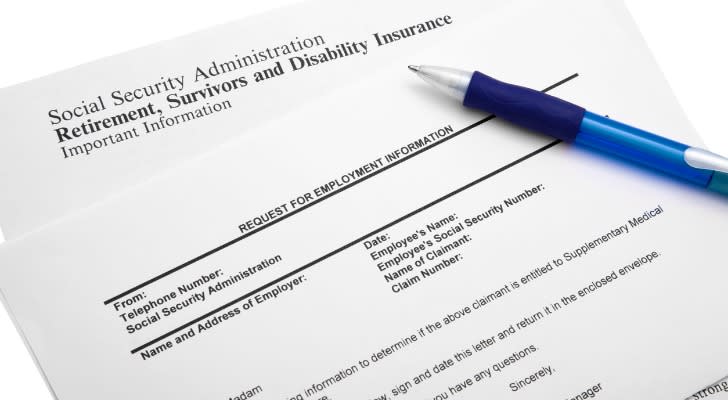[ad_1]

Losing a spouse is an emotional and challenging experience, and it often brings financial concerns to the forefront. Social Security benefits can provide critical support to widows, helping them navigate the financial aspects of their loss. In this comprehensive guide, we’ll explore the eligibility criteria, the amount widows can receive in survivor benefits, the possibilities for divorced or remarried widows, the choice between retirement and survivor benefits and the steps to claim survivor benefits. A financial advisor can also help you navigate challenging financial times, including losing a spouse.
Are Widows Eligible for Social Security Benefits?
Widows and widowers are indeed eligible for Social Security benefits – known as survivor benefits – provided they meet certain criteria.
First, the deceased spouse must have worked long enough to have eventually been eligible for Social Security. The Social Security Administration calculates eligibility based on credits, but the number of credits required to qualify varies depending on a person’s age when they die.
Second, the widow(er) must be at least 60 years old to claim survivor benefits (or 50 if they’re disabled). However, these age requirements don’t apply if a widow(er) hasn’t remarried and cares for their deceased spouse’s child. The surviving spouse can collect benefits at any age as long as the child is:
How Much Can a Widow Receive in Survivor Benefits?

The amount a widow can receive in survivor benefits depends on various factors, including the late spouse’s earnings and the age at which the widow claims the benefits.
Survivor benefits are calculated based on the deceased spouse’s primary insurance amount (PIA). Generally, widows can receive between 71.5% to 100% of their deceased spouse’s full retirement benefit. If a widow claims benefits at full retirement age, they typically receive 100% of the deceased spouse’s PIA, while claiming before full retirement age results in reduced benefits.
Here’s a closer look at how survivor benefits may be calculated in different scenarios:
One-Time Death Benefit
In addition to ongoing monthly payments, widows may also be eligible for a one-time payment of $255 upon the spouse’s passing, as long as they lived together at that time. This payment is designed to provide immediate, albeit small, financial relief in the aftermath of the spouse’s death. If the widow(er) was not living with their spouse at the time of death but was receiving benefits from them, they also may be entitled to his lump-sum payment.
Can Divorced or Remarried Widows Receive Benefits?
One common question that arises is whether divorced or remarried widows are eligible for Social Security survivor benefits. The answer is yes, with certain conditions. If you are divorced and your ex-spouse has passed away, you may be eligible for survivor benefits based on their Social Security record, provided you meet specific criteria.
First and foremost, the marriage must have lasted at least 10 years before divorce. If your marriage satisfied the 10-year rule and you haven’t gotten remarried, you’re typically eligible for survivor benefits when your ex-spouse dies.
If you’ve remarried since your divorce, however, you may not be eligible for survivor benefits. Ex-spouses who remarry are entitled to benefits only if they remarry after age 60 (age 50 if they are disabled). Remarrying before you turn 60 will disqualify you from potential survivor benefits.
Retirement vs. Survivor Benefits: Which One Should You Collect?

Understanding the difference between retirement and survivor benefits is crucial for widows deciding which option to choose. Retirement benefits are based on your own work history, while survivor benefits are based on your deceased spouse’s earnings. Here are three key considerations to help you decide:
-
Amount: Survivor benefits can often be higher than your own retirement benefits, especially if your spouse had a higher earning history. You can receive up to 100% of your deceased spouse’s benefit amount.
-
Timing: You can claim survivor benefits as early as age 60, while retirement benefits can typically be claimed as early as age 62. The age at which you claim benefits will affect the amount you receive.
If you’re eligible for your own retirement benefits, you can potentially claim survivor benefits at age 60 and eventually switch to your retirement benefit when it surpasses the value of your survivor payment.
How to Claim Survivor Benefits
Claiming Social Security survivor benefits involves a specific process. Here’s a step-by-step guide:
-
Contact the SSA: Notify the Social Security Administration of your spouse’s death as soon as possible. You can do this by phone by calling (800) 772-1213 or in person at your local SSA office.
-
Gather required documentation: You will need certain documents, including your spouse’s death certificate, your marriage certificate and your Social Security numbers.
-
Apply for benefits: You can apply for survivor benefits online, by phone, or in person. The SSA will guide you through the application process and inform you about the documents you need to provide.
Bottom Line
Losing a spouse is an emotional journey, and understanding Social Security benefits for widows and widowers can provide some financial stability during this challenging time. Surviving spouses should be aware of their eligibility, the factors influencing benefit amounts and the choice between retirement and survivor benefits.
Social Security Planning Tips
-
As you can see, planning for Social Security can be complicated, but a financial advisor can help walk you through the process. Finding a financial advisor doesn’t have to be hard. SmartAsset’s free tool matches you with up to three vetted financial advisors who serve your area, and you can have a free introductory call with your advisor matches to decide which one you feel is right for you. If you’re ready to find an advisor who can help you achieve your financial goals, get started now.
Photo credit: ©iStock.com/Stígur Már Karlsson /Heimsmyndir, ©iStock.com/Johnrob, ©iStock.com/ljubaphoto
The post Ultimate Guide to Social Security Benefits for Widows appeared first on SmartReads by SmartAsset.
[ad_2]
Source link
